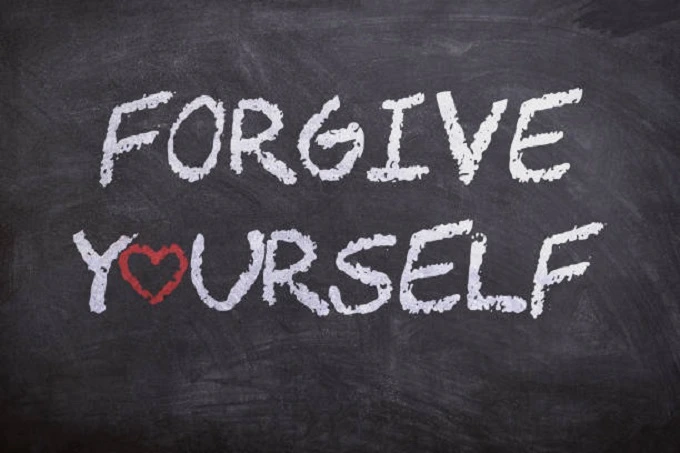How to forgive yourself for a mistake that ruined your life

Everyone makes mistakes, and they may be big and unpleasant at times. You may believe that one bad choice, word, or action has destroyed the rest of your life. Most of the time, this is not the case, but you must forgive yourself in order to recognize this and begin to improve the conditions in which you are at blame. It won’t be easy, but you must persevere for your future. We’ve compiled a list of ways to help you get beyond your negative feelings and stop berating yourself.
6 ways to forgive yourself for a mistake that ruined your life

1. Consider the circumstances around your decision
You are unlikely to do anything dumb just because you want to. It’s simple to blame yourself now that you’ve reached the peak of your experience and can judge the whole issue. After all, it seems that the correct course of action was obvious to you.
If you didn’t make the appropriate choice, it implies you lacked the necessary information and abilities. Consider the conditions in which you acted before berating yourself for your mistakes. There had to be a lot of stress, a lack of awareness of your alternatives, many blind spots you couldn’t manage, and maybe a lack of support and self-doubt. All of this has an impact on your decision-making process.
You may believe you’ve done something dumb now that you’re in a calm environment and aren’t under pressure to define a plan of action in the quickest feasible period. But you did your best at that time.
2. Make an effort to correct the situation
Instead of sitting around verbally abusing yourself, put your energy into something more productive. If at all feasible, attempt to correct the problem. If not, at the very least, consider how you might reduce the negative influence on your life. If you put up the effort, you can adapt to anything.
If you have nothing to lose and the situation isn’t going your way, it’s better to put your time and energy into something that will keep you afloat. Work on your mistakes – if required, get advice or assistance from others, contact a professional, and use all of your alternatives. It won’t get much worse, but it’s up to you if you can do better.
3. Take it easy on yourself
You’re just human, so reread it and figure out what it means. You are just human, which means you, like everyone else, may make mistakes. No one has lived their whole life without making a single mistake.
You made mistakes, your father made mistakes, and your grandfather, no matter how intelligent you believe he was, made mistakes. Why don’t you attempt to find the courage to forgive yourself and go on with your life if everyone else around you can? Don’t be too harsh on yourself; it’s easier to forgive others than to forgive yourself, but you’re just as able.
Give yourself a break from your anxious thoughts by going outdoors, going out with friends, or watching your favourite movie. This will be much more beneficial than pressuring yourself to take quick action or attempting to change problems over which you have had little influence for a long time. However, you could need a fresh start.

4. Never forsake yourself
You can rebuild your life and forgive yourself, no matter how horrible and damaging the mistake was. Don’t give up on yourself; you are deserving of another opportunity. If you’re living, you already have one; don’t throw it away. Finally, many individuals have made fatal mistakes that have ruined their lives. Those who continued pushing ahead, on the other hand, were generally successful in their quests for purpose, loved ones, and self-respect.
As strange as it may seem, go on with your life. Maintain contact with loved ones, pursue your hobbies and interests, and look after your health. Do all you can to stay grounded and feel better about yourself. Take responsibility for the here and now; attempting to change the past or worrying about the future is useless. It will only cause you annoyance, fear, and terrible anxiety.
5. Make no excuses
It’s a poor idea to look for excuses. You are usually well aware of how and why you behaved. Trying to justify your acts in any manner will leave you feeling dissatisfied with yourself and like you’re cheating yourself. The anguish of conscience and a refusal to accept reality will only make it more difficult for you to accept the circumstance and cause you to beat yourself up even more.
Allow yourself to experience all of your bad feelings rather than avoid them. You will be hurt, nervous, and worried; allow yourself to express all of your emotions. If you hold it all within or ignore your symptoms, you may soon find yourself receiving an antidepressant or sedative prescription at a psychiatrist’s office.
Emotions do not make you weak, and they do not disappear when you pretend they don’t exist. To let go of the circumstance, you’ll need to go through all of your emotions as many times as necessary until you accept what occurred and calm down.
6. Don’t be afraid to seek help

If you’re having trouble coping with your emotions, the greatest thing you can do is get professional help. A visit to a psychotherapist is an excellent place to start since he or she can tell you whether you need to see a psychiatrist, if you need medication, or if therapy sessions alone are sufficient. Don’t take anything personally, no matter what the advice is. It’s important to express how you’re feeling, what you’re afraid of, and what you’re dreaming about so that the therapist can help you come to the best conclusions about the problem.
Don’t believe the intelligent individuals who claim that psychological help is ineffective and that mental illnesses are manufactured. People who reject reality should not be trusted. This will make your life easier and allow you to cope with whatever is bothering you. Put your mental health first; if you don’t, you risk developing anxiety, depression, and various other terrifying conditions that will drastically affect your quality of life.




